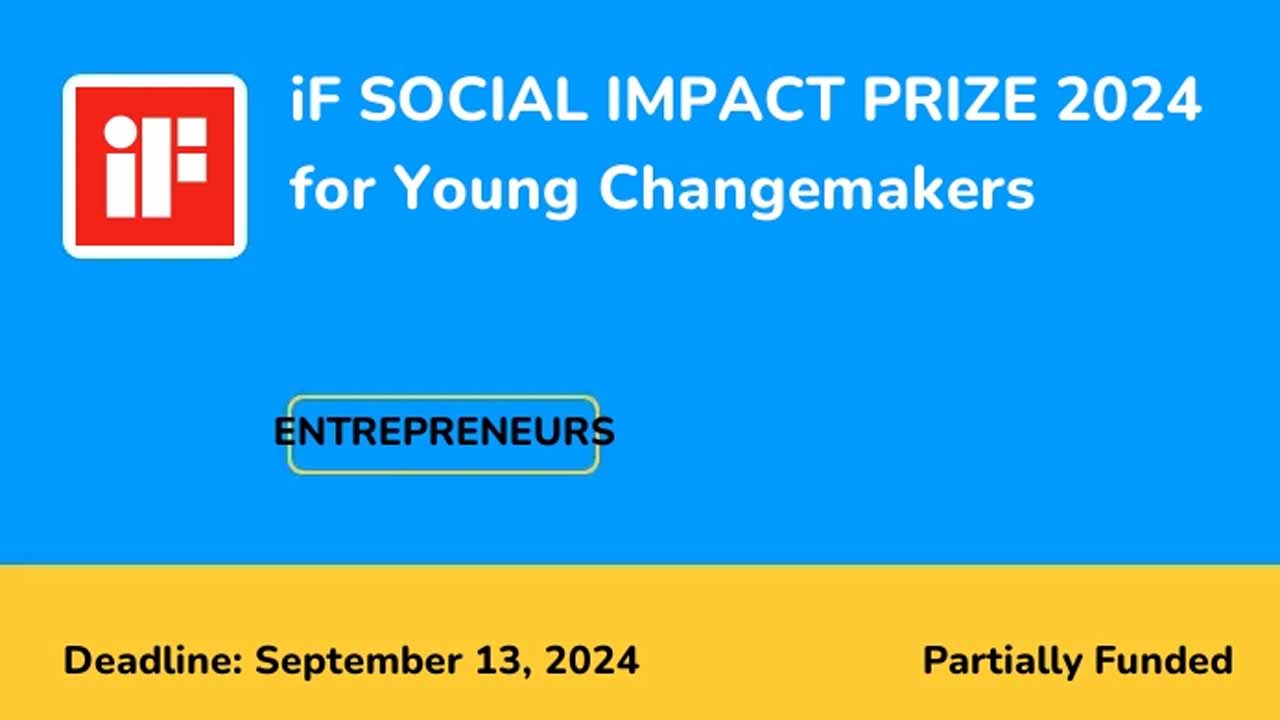Education
Strategies for Every Classroom in the Age of AI

The advent of artificial intelligence (AI) is reshaping various sectors, and education is no exception. As AI technologies become more integrated into everyday life, classrooms must evolve to prepare students for a future where AI is prevalent. Leveraging AI in education can enhance teaching methods, personalize learning experiences, and improve student outcomes. Here are essential strategies for every classroom to thrive in the age of AI.
Unlocking Potential: Strategies for Success in AI-Enhanced Classrooms

1. Integrate AI-Powered Learning Tools
- Why It Matters: AI-powered tools can personalize learning experiences, adapt to individual student needs, and provide instant feedback, making learning more effective and engaging.
How to Implement:
- Adaptive Learning Platforms: Use AI-driven platforms like DreamBox, Knewton, or Smart Sparrow that adjust content based on student performance, ensuring a tailored learning experience.
- Intelligent Tutoring Systems: Implement systems like Carnegie Learning or MATHia that offer personalized tutoring, helping students master complex concepts at their own pace.
- AI-Powered Writing Assistants: Tools like Grammarly or Turnitin can help students improve their writing skills by providing real-time feedback on grammar, style, and originality.
2. Promote Digital Literacy and AI Understanding
- Why It Matters: As AI becomes more integrated into society, students need to understand its basics, benefits, and ethical considerations.
How to Implement:
- Curriculum Integration: Incorporate lessons on AI basics, machine learning, and data science into the existing curriculum. Use resources from platforms like Khan Academy or Coursera.
- Project-Based Learning: Engage students in projects that involve AI, such as creating simple chatbots, analyzing data sets, or exploring AI ethics through case studies.
- Guest Speakers and Workshops: Invite AI experts to speak to students about the technology, its applications, and career opportunities in the field.
3. Enhance Student Engagement with AI-Driven Gamification
- Why It Matters: Gamification can make learning more interactive and enjoyable, motivating students to engage more deeply with the content.
How to Implement:
- Game-Based Learning Platforms: Use platforms like Kahoot!, Quizlet, or Classcraft that incorporate game mechanics into learning activities, providing a fun and competitive environment.
- AI-Enhanced Educational Games: Integrate games that use AI to adapt to student skill levels, such as Prodigy for math or Duolingo for language learning.
- Leaderboards and Rewards: Implement AI-driven tools that track student progress and offer rewards or recognition for achievements, fostering a sense of accomplishment.
4. Utilize AI for Classroom Management and Efficiency
- Why It Matters: AI can streamline administrative tasks, allowing teachers to focus more on instruction and student interaction.
How to Implement:
- Automated Grading Systems: Use AI tools like GradeScope or ExamSoft to automate the grading of multiple-choice, short-answer, and essay questions, providing timely feedback.
- Attendance Tracking: Implement AI-based attendance systems that use facial recognition or digital check-ins to track student presence efficiently.
- Personalized Learning Plans: Use AI to analyze student performance data and create individualized learning plans that address specific needs and strengths.
5. Facilitate Collaborative Learning with AI Tools
- Why It Matters: Collaborative learning enhances critical thinking, communication, and teamwork skills, essential for future success.
How to Implement:
- AI-Powered Collaboration Platforms: Use tools like Google Classroom, Microsoft Teams, or Slack that incorporate AI features to streamline communication, file sharing, and project management.
- Virtual Study Groups: Create AI-facilitated virtual study groups where students can collaborate on projects, share resources, and receive automated assistance.
- Peer Review Systems: Implement AI tools that facilitate peer review of assignments, providing structured feedback and fostering collaborative learning.
6. Incorporate AI in Formative Assessments
- Why It Matters: Formative assessments provide ongoing feedback that can help improve student learning and instructional strategies.
How to Implement:
- AI-Based Assessment Tools: Use tools like Edulastic or Socrative that provide real-time analytics and insights into student performance, allowing for timely interventions.
- Interactive Quizzes and Polls: Implement AI-enhanced quizzes and polls during lessons to gauge understanding and adjust instruction as needed.
- Data-Driven Insights: Use AI to analyze assessment data and identify trends, strengths, and areas for improvement at both the individual and class levels.
7. Address the Ethical and Societal Implications of AI
- Why It Matters: Understanding the ethical and societal impacts of AI is crucial for developing responsible future citizens.
How to Implement:
- Ethics Curriculum: Include discussions on AI ethics, data privacy, and the societal implications of AI technologies within the curriculum.
- Debate and Critical Thinking: Organize debates and discussions on AI-related topics, encouraging students to think critically about the technology and its impact on society.
- Real-World Case Studies: Examine real-world cases of AI use and misuse, discussing the ethical dilemmas and potential solutions.
8. Foster a Growth Mindset towards Technology
- Why It Matters: Encouraging a growth mindset helps students view challenges as opportunities for learning and growth, particularly in rapidly evolving technological fields.
How to Implement:
- Encourage Experimentation: Allow students to experiment with AI tools and technologies, emphasizing the learning process over immediate success.
- Reflect on Learning: Have students reflect on their experiences with AI, discussing what they learned, what challenges they faced, and how they overcame them.
- Celebrate Innovation: Recognize and celebrate innovative uses of AI in student projects and assignments, fostering a culture of creativity and curiosity.
Conclusion
The integration of AI in education offers transformative potential to enhance learning experiences and outcomes. By embracing AI-powered tools, promoting digital literacy, enhancing engagement, and fostering ethical understanding, educators can prepare students for a future where AI plays a significant role. As we navigate the age of AI, these strategies can help create dynamic, inclusive, and effective learning environments that empower students to thrive in an increasingly digital world.
Also, check out our articles on effective ways to help students build confidence and tips to increase their memory power. The second article has effective strategies to resolve retention issues in education. Which can be frustrating and disheartening for teachers and parents. Finally, you can also read Mastering Assessments, a detailed article that has different types on how to boost learning.
Scholarships
Worldwide University of Edinburgh Data Analytics Scholarship for Students 2024

The University of Edinburgh Business School is offering a range of scholarships for students pursuing the Master of Science in Data and Decision Analytics (Online) program in 2024. These scholarships are designed to support students from all nationalities and backgrounds, providing financial assistance to help them achieve their academic goals.
Scholarship Details
The University of Edinburgh Business School Data Analytics (Online) Scholarship Programme offers the following benefits:
- Scholarship Value: Awards of £5,000
- Nationality: Open to students from all countries
- Deadline: 01 July 2024
Eligibility Criteria
To be eligible for the University of Edinburgh Business School Data Analytics (Online) Scholarship Programme, applicants must meet the following criteria:
- Programme: Must be commencing study in September 2024 on the Master of Science in Data and Decision Analytics (Online) program.
- Academic Standing: Hold a minimum qualification of above-average academic achievement, typically 65% or above overall at the Masters level, with a distinction-level dissertation, or the overseas equivalent.
- English Competency: Must meet the English requirements for the PhD programme. The most commonly approved certificate is an IELTS, for which the minimum accepted score is 7.0 overall with at least 6.0 in each section.
Application Process
The application process for the University of Edinburgh Business School Data Analytics (Online) Scholarship Programme involves the following steps:
- Apply for Admission: Students must first apply for admission to the Master of Science in Data and Decision Analytics (Online) program at the University of Edinburgh Business School.
- Submit Scholarship Application: Eligible candidates should then submit the scholarship application through the university’s official portal.
- Evaluation and Selection: Applications are evaluated and selected by a panel of senior academic colleagues within the Business School.
Additional Funding Opportunities
The University of Edinburgh offers several other funding opportunities for students, including:
- Edinburgh Global Online Learning Masters Scholarships: Twelve scholarships covering full tuition fees for eligible part-time distance learning Masters programs.
- UK Government Postgraduate Loans: Available to UK residents for part-time or full-time postgraduate study.
- Other External Funding: Students can search for scholarships and funding opportunities on the University of Edinburgh website.
About the University of Edinburgh
The University of Edinburgh is a world-leading institution, ranked 22nd in the world in the QS 2024 rankings. The University of Edinburgh Business School is accredited by the Association to Advance Collegiate Schools of Business (AACSB), EFMD Quality Improvement System (EQUIS), and Association of MBAs (AMBA), highlighting its commitment to excellence in teaching and research.
For more information about the University of Edinburgh Business School Data Analytics (Online) Scholarship Programme and to apply, please visit the university’s website or contact the Business School directly.
Application Deadline: July 1, 2024.
For More Information,
Visit the Official Website
Scholarships
2024 Swansea University International Postgraduate Research Excellence Scholarships

Swansea University, a leading research institution in the UK, is offering the prestigious International Postgraduate Research Excellence Scholarships for the 2024 academic year. These highly competitive scholarships are designed to support exceptional international students pursuing postgraduate research degrees at the university.
Scholarship Benefits
The International Postgraduate Research Excellence Scholarships provide comprehensive financial support to recipients, including:
- A full tuition fee waiver for the duration of the research degree program
- A generous living allowance of £15,285 per year (2023/24 rate)
- Access to a world-class research environment and facilities
The scholarships are available for both Master’s by Research and Doctoral (PhD) programs at Swansea University.
Eligibility Criteria
To be eligible for the International Postgraduate Research Excellence Scholarships, applicants must meet the following criteria:
- Be an international student (non-UK/Republic of Ireland)
- Hold a relevant undergraduate degree with a minimum of a 2:1 classification or equivalent
- Meet the English language proficiency requirements for their chosen program
- Have applied for and met the entry requirements for a Master’s of Research or a Doctoral degree at Swansea University
Application Process
The application process for the International Postgraduate Research Excellence Scholarships involves the following steps:
- Apply for admission to a postgraduate research degree program at Swansea University.
- Submit the scholarship application through the university’s official portal, including a research proposal and supporting documents.
- Successful applicants will be notified of their scholarship award.
The application deadline for the 2024 scholarships is typically in early 2024. Interested students are encouraged to check the university’s website for the most up-to-date information on the application process and deadlines.
About Swansea University
Swansea University is a research-led institution known for its excellence in various fields, including engineering, science, and medicine. The university is ranked among the top 30 in the UK for research quality and impact, according to the Research Excellence Framework (REF) 2021.
International students at Swansea University benefit from a supportive learning environment, access to cutting-edge facilities, and opportunities for personal and professional growth. The university’s commitment to research and innovation makes it an ideal destination for aspiring postgraduate researchers.
For more information about the 2024 Swansea University International Postgraduate Research Excellence Scholarships and to apply, please visit the university’s website or contact the International Office.
Scholarships
iF Social Impact Prize 2024 (EUR 100,000)

The iF Social Impact Prize 2024, an initiative by the prestigious iF International Forum Design GmbH, is offering a total prize of €100,000 to support projects that contribute to solving urgent challenges and improving living conditions around the world. This international competition is open to companies, NGOs, foundations, design studios, social enterprises, and entrepreneurs who are working towards achieving the United Nations Sustainable Development Goals (SDGs).
Eligibility and Categories
To be eligible for the iF Social Impact Prize 2024, projects must:
- Already be established and implemented
- Contribute to solving well-known issues in any category of the UN SDGs 1-15
- Be submitted by companies, NGOs, foundations, design studios, social enterprises, or entrepreneurs (student concepts are not accepted)
Applicants can submit solutions related to the following SDG categories:
- No Poverty
- Zero Hunger
- Good Health and Well-being
- Quality Education
- Gender Equality
- Clean Water and Sanitation
- Affordable and Clean Energy
- Decent Work and Economic Growth
- Industry, Innovation, and Infrastructure
- Reduced Inequalities
- Sustainable Cities and Communities
- Responsible Consumption and Production
- Climate Action
- Life Below Water
- Life on Land
Benefits for Winners
The winning projects of the iF Social Impact Prize 2024 will receive:
- A share of the €100,000 prize money
- Publication on the iF Design Website for an unlimited period
- Introduction to a global design community, media, and the design-interested public
- Individual Winner Certificates
- Jury feedback and the opportunity to update their projects with the latest videos, photos, or news
Application Process and Deadlines
The application process for the iF Social Impact Prize 2024 involves creating an iF account, filling out the submission form, uploading photos, and providing a short project description. The submission deadline for the second round is September 13, 2024.
Evaluation Criteria
The international jury of experts from the social sector will evaluate and select the winning projects based on the following criteria:
- Problem-solving
- Beneficial experience
- Reasonable effort
- Moral and ethical standards
- Solidarity
Conclusion
The iF Social Impact Prize 2024 is a unique opportunity for organizations and individuals working towards positive social change to showcase their projects, compete for a substantial cash prize, and gain international recognition. By supporting projects aligned with the UN SDGs, the iF Social Impact Prize aims to empower those who make a difference and contribute to improving our society.
For more information and to apply, visit the iF Design Award website at ifdesign.com.
Method of Application
Visit The Official Website to Apply
Application Deadline: September 13, 2024.
For More Information,
Visit the Official Website
-

 News10 months ago
News10 months ago6 Ways To Attract a Rich Girl of Your Dream
-

 Finance9 months ago
Finance9 months agoWhich credit card is best for small businesses?
-

 Finance9 months ago
Finance9 months agoBest Business Credit Cards With 0% APR – February 2024
-

 Finance9 months ago
Finance9 months agoHow To Apply For A Chase Business Credit Card
-

 Finance11 months ago
Finance11 months agoLowe’s Credit Card: New Discounts on Lowe’s Purchases
-

 Finance9 months ago
Finance9 months agoLimited Time: Sign up for Chase Freedom Unlimited for a Year of Unlimited Cash Back!
-

 Entertainment11 months ago
Entertainment11 months agoNetflix Schedule January 2024
-

 Tech11 months ago
Tech11 months agoApple Vision Pro: $3,499 headset finally has a release date








